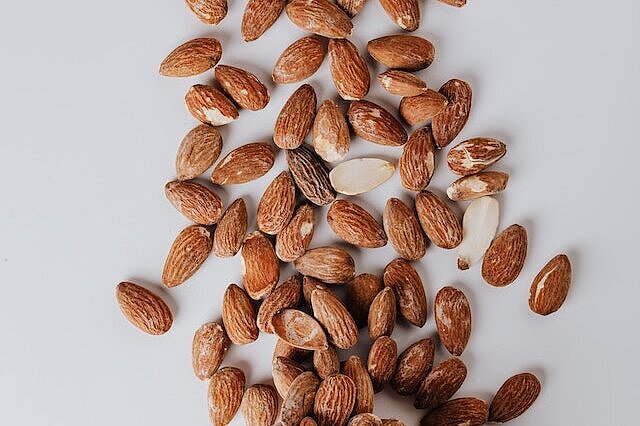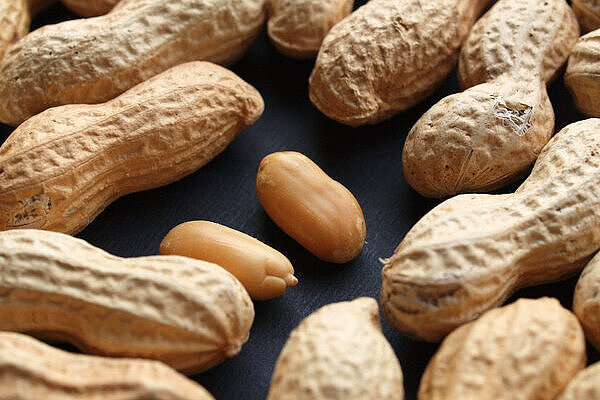Coconut flakes

What are coconut flakes?
Coconut flakes are a product made from the coconut, a tropical stone fruit. To make coconut flakes, the flesh of the coconut is removed from the shell, dried and crushed. This produces the typical flakes that you can buy in the supermarket. Coconut flakes contain a lot of fat, fiber, minerals and vitamins. They have a sweet taste and a pleasant aroma.
What are the benefits of coconut flakes for dogs?
Coconut flakes can have some health benefits for your dog if you feed them in moderation. For example, coconut flakes can:
- Boost the immune system: The fatty acids contained in coconut flakes have antibacterial, antiviral and antifungal effects. They can therefore help to prevent or fight infections.
- Caring for the skin and coat: The fatty acids in coconut flakes can also keep your dog's skin and coat healthy. They can prevent dry skin, relieve itching and make the coat shiny.
- Promote digestion: The fiber in coconut flakes can stimulate bowel movements and prevent constipation. They can also improve the absorption of nutrients and support the intestinal flora.
- Regulate weight: Coconut flakes have a high calorie content, but also a high satiety effect. This means that they can help your dog to maintain his ideal weight or lose weight if you dose them correctly.
What are the disadvantages of coconut flakes for dogs?
Coconut flakes are not suitable for every dog. There are some disadvantages or risks that you should be aware of before giving your dog coconut flakes. For example, coconut flakes can
- Trigger allergies: Some dogs are allergic to coconut or other ingredients in coconut flakes. If your dog shows signs of an allergic reaction, such as a skin rash or itching, you should stop feeding. If there is swelling or difficulty breathing, you should consult a vet immediately.
- Cause stomach problems: Too much coconut flakes can cause your dog stomach pain, diarrhea or vomiting. This is because coconut flakes are very high in fat and can put a strain on the digestive system.
- Increase the cholesterol level: While the fatty acids in coconut flakes are healthy, they are also very high in cholesterol. If your dog already has a high cholesterol level or suffers from cardiovascular disease, you should not give him coconut flakes or only very little.
How do you dose coconut flakes correctly?
If you want to give your dog coconut flakes, you should follow a few rules to get the benefits and avoid the disadvantages. Here are some tips:
- Start with a small amount: To see how your dog reacts to coconut flakes, you should only give him a small amount at first, for example half a teaspoon per day. If he doesn't show any negative symptoms, you can slowly increase the amount.
- Do not exceed the recommended daily dose: The recommended daily dose for dogs is around one teaspoon per 4.5 kilograms of body weight. This means that if your dog weighs 10 kilograms, you should not give him more than two teaspoons of coconut flakes per day. Too much coconut flakes can harm your dog.
- Mix coconut flakes with food: To make it easier for your dog to digest, you should mix coconut flakes with his normal food. This will also prevent him from rejecting the coconut flakes or eating them too quickly.
- Buy unsweetened and unsulphured coconut flakes: Make sure you only buy coconut flakes that don't contain additives such as sugar or sulphur. These can harm your dog or impair the effect of the coconut flakes.
Coconut flakes are a delicious and healthy treat for your dog if you use them correctly. They can have a positive effect on your dog's immune system, skin, coat, digestion and weight. However, you should also be aware of the possible disadvantages and risks of coconut flakes and only give your dog an appropriate amount.
If you notice any signs of hypersensitivity or poisoning in your dog, you should see your vet immediately. We are not a substitute for a vet, but we try to be as accurate as possible. Every dog reacts differently and we recommend you get a second opinion or consult your vet if in doubt.
Stay healthy and take good care of your four-legged friend!😊
Similar to Coconut flakes
Almonds are the seeds of the almond tree, which belongs to the rose family. They grow in a hard shell that must be removed before consumption. There are two types of almonds: sweet almonds and...
Hazelnuts are the seeds of the hazelnut, a plant from the birch family. The hazelnut grows as a shrub or small tree and bears round or oval nuts with a hard shell and a sweet kernel in the fall....
Walnuts are the fruit of the walnut tree, which belongs to the beech family. They grow in a green shell that opens in the fall to reveal the nut. The nut has a hard, brown shell and a soft,...
The peanut is a plant from the legume family and originally comes from South America. The fruits of the peanut are seeds that grow in a hard shell. This shell is often referred to as a nut, although...



